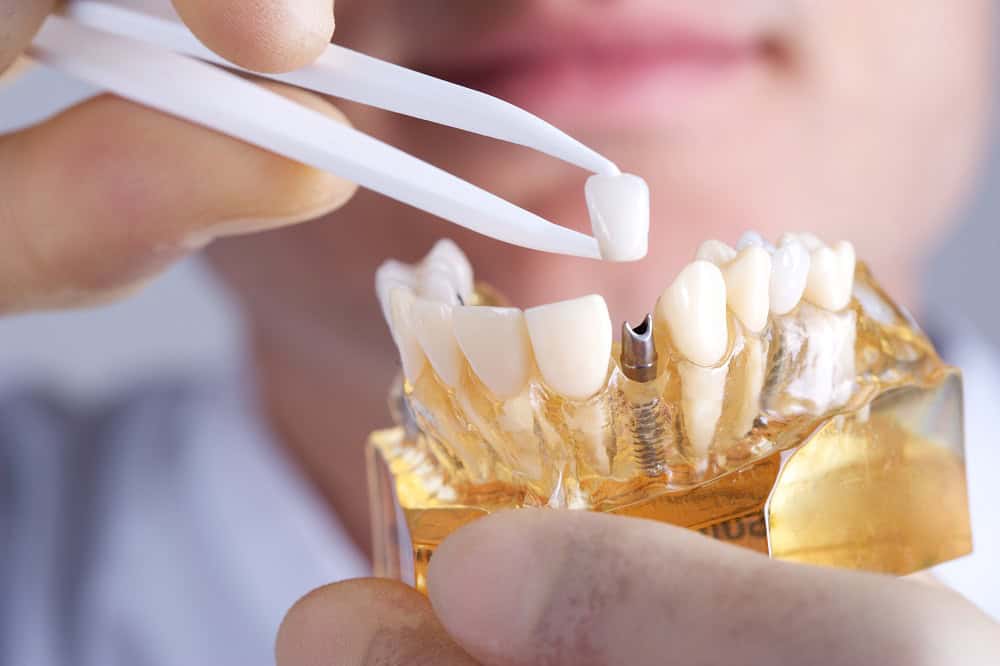Dental implants are an excellent option due to the many advances in oral surgery, whether used to replace a single tooth or an entire arch of teeth.
When you visit a dentist near you, you can rest assured that you will receive a thorough and precise diagnosis that will account for your situation’s practical and cosmetic needs. If you don’t have enough healthy bone material for the procedure, they’ll be able to let you know how to move forward.
What are Dental Implants?
Dental implants are replacement tooth roots surgically inserted into a patient’s jaw. They can provide a solid base for restorative prosthetics, such as crowns, bridges, and dentures. Osseointegration, a process that occurs over a couple of months, causes the implant to integrate with the bone around it, strengthening and stabilizing it. Unlike other treatments, dental implants near you don’t need the support of neighbouring teeth.
Once the procedure is done, you’ll experience increased chewing function, have a smile that looks just as natural and beautiful as before, and your nearby teeth will remain preserved. Implants improve oral and general health and function and are a permanent remedy for missing teeth with the proper upkeep.
How Does Bone Grafting Work On Teeth?
Bone grafting is a process whereby bone from a donor is inserted to support dental implants in Prince Albert. This graft stimulates the formation of new bone cells, which should eventually mature into a quantity and quality of bone strong enough to anchor your implant. When a patient doesn’t have enough bone to support an implant, a bone transplant is inserted simultaneously.
The specialists use piezoelectric procedures to restore the missing bone for minimally invasive bone grafting. Bone grafting may be a good option if you’ve lost bone due to advanced gum disease, trauma, or tooth loss. Bone grafting is often recommended fairly immediately after tooth extraction To ensure a strong foundation for a dental implant or crown. Your dental implant operation can be more successful with bone grafting, but it will take longer.
What Happens During Bone Grafting Treatment?
The specifics of a bone grafting method are determined by the quantity of bone required and the donor site. A dentist in Prince Albert can utilize bone from another part of your body, such as your hip or chin, or harvest bone from a donor.
Alloplasts, which are artificial bone grafts, are also used. Our periodontal experts can advise you on the best course of action for your teeth and gums during a consultation. We administer local anesthesia when your graft is ready.
We employ ultrasonic technology to minimize damage to the gums around the treatment region while preparing the jawbone. Your jawbone will act as an anchor for the graft. The wound is closed surgically and given six to nine months to mend.
What Can You Expect Post-Procedure?
Dental bone transplantation may have unpleasant side effects, including pain and mild swelling. If you give it enough time, your jaw graft will eventually heal and merge with your natural jawbone.
Follow-up appointments with our dental specialists need to be scheduled so that they can evaluate your progress in healing and establish whether or not your jawbone is strong and healthy enough for the dental implant procedure.
Get Your Smile Fixed with the Help of Our Dental Experts
Our goal at Prairie Pines Dental is to give each of our patients a reason to beam with pride every time they see us. Dental implants can replace missing teeth and restore chewing abilities. Our experts can tell you during your appointment if you are a good candidate for this unique procedure. If you want to learn more about the process, don’t hesitate to contact us to schedule a consultation.
